Reading comprehension Normal Community Worksheets for Ages 3-7
22 filtered results
-
From - To
Explore our engaging reading comprehension worksheets designed for children aged 3-7, focusing on normal community themes. These resources help young learners develop essential literacy skills through fun and interactive activities that connect educational content to their everyday experiences. Our worksheets incorporate vibrant illustrations and relatable scenarios to keep kids interested, while prompting them to think critically about their surroundings. Perfect for teachers and parents, these materials support a foundational understanding of communities and improve reading comprehension in a delightful and age-appropriate manner. Start nurturing a love for reading and an understanding of community today with our thoughtfully created resources!


Services Worksheet
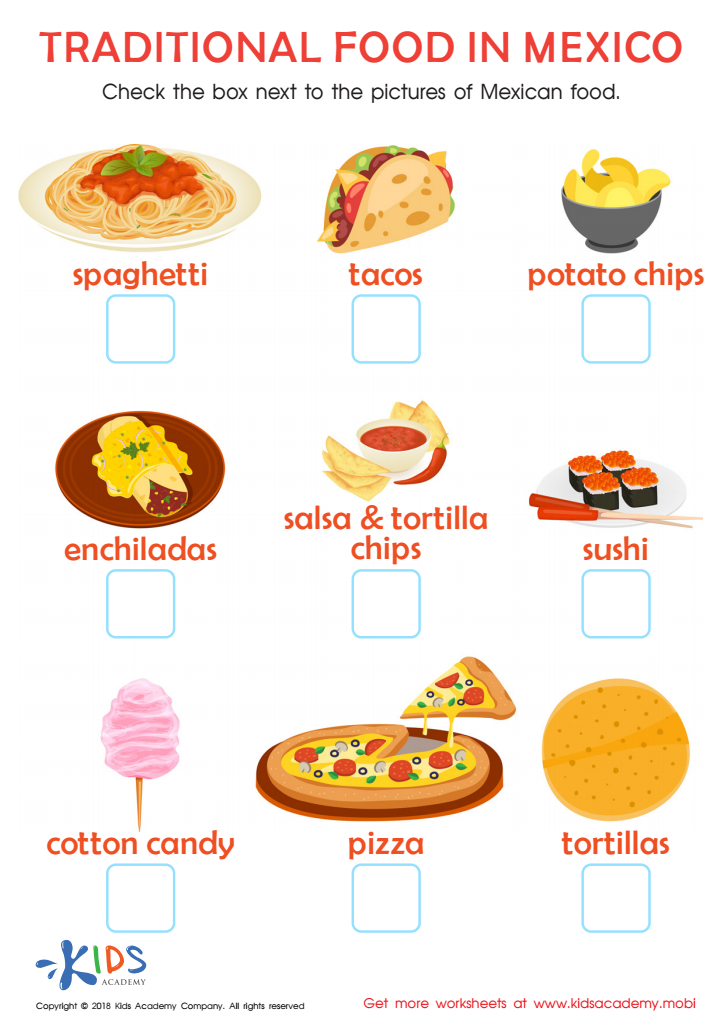

Traditional Food in Mexico Worksheet
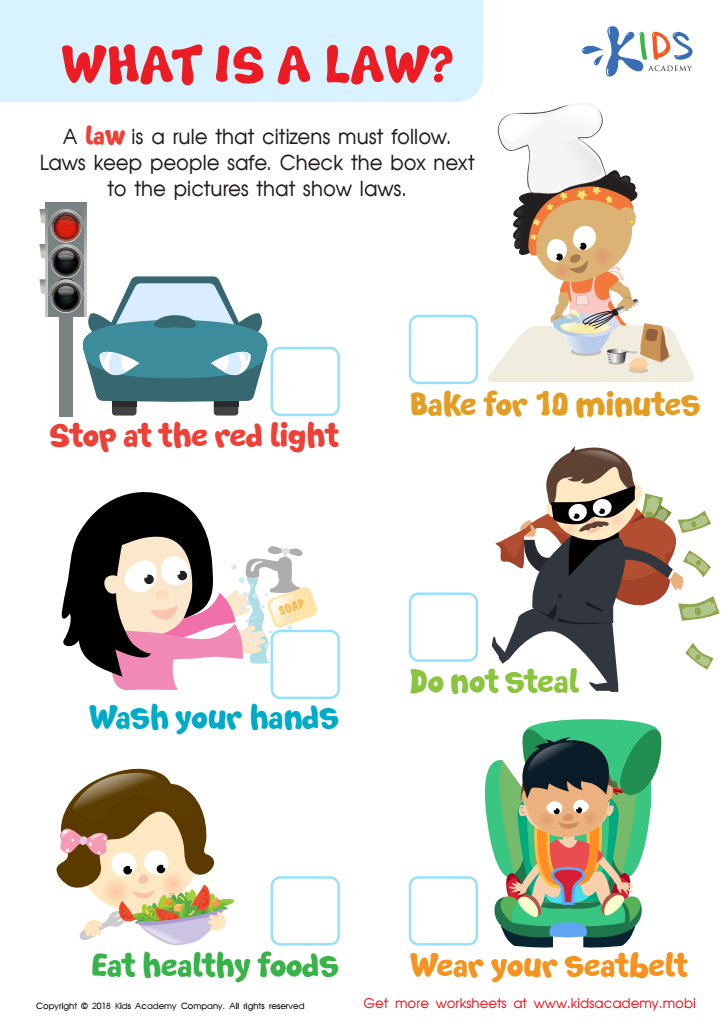

What is a Law? Worksheet
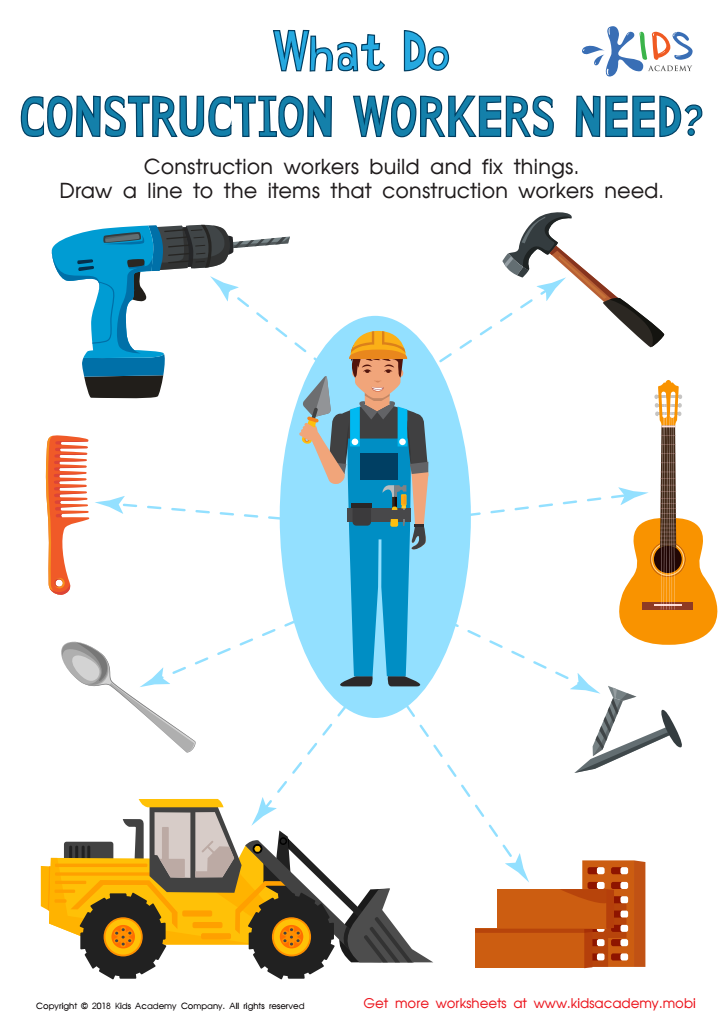

What Do Construction Workers Need? Worksheet
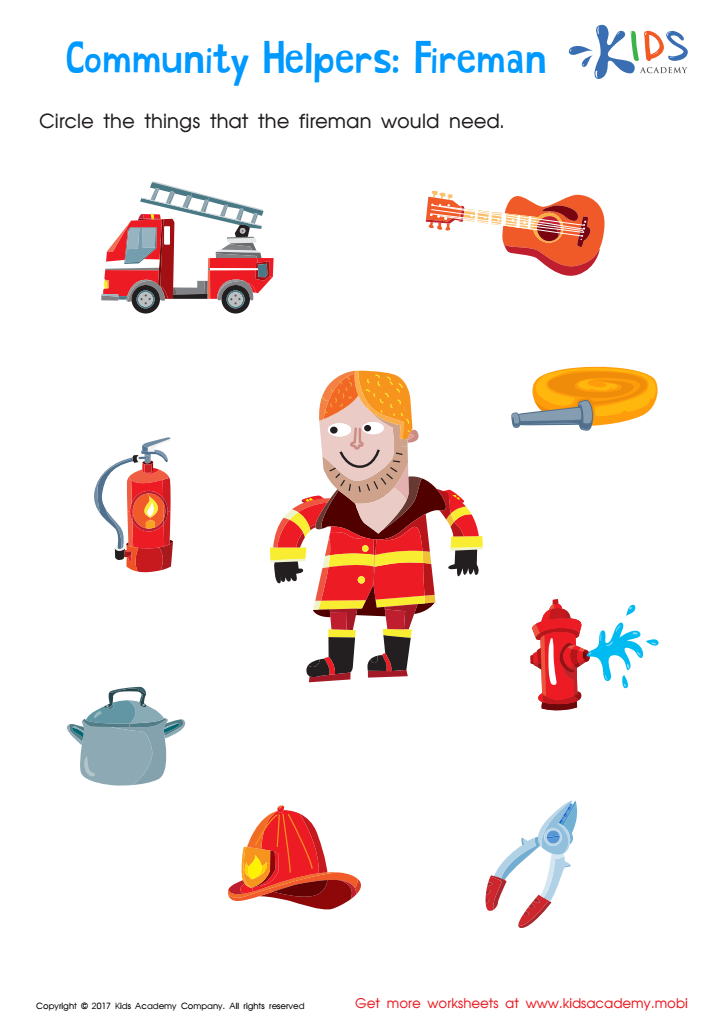

Fireman Worksheet
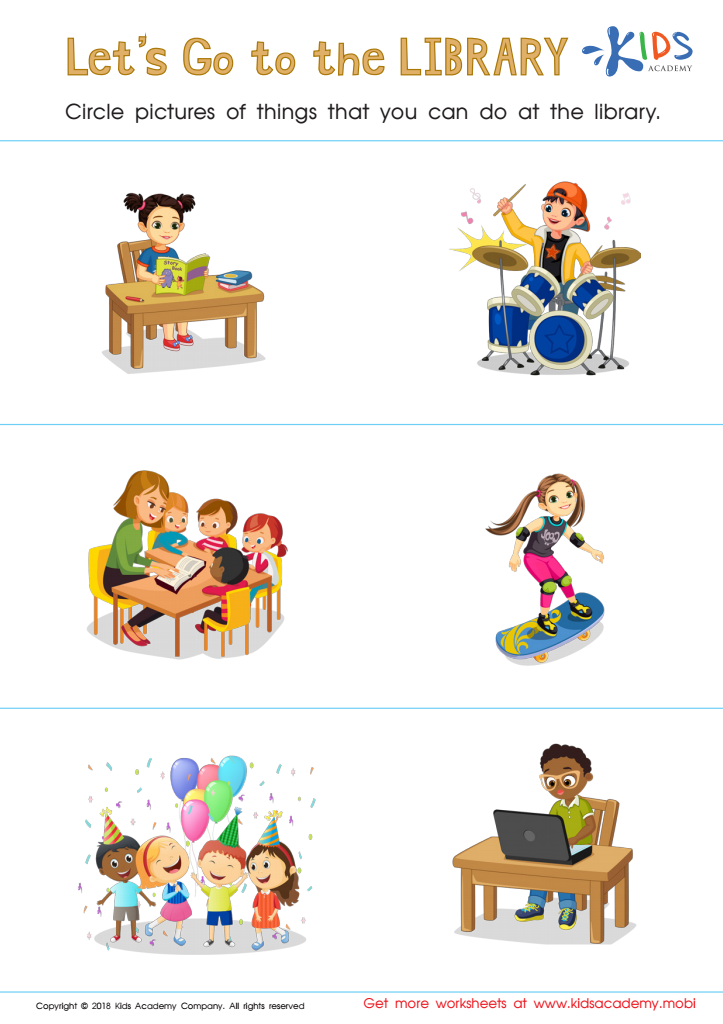

Let's Go to the Library! Worksheet
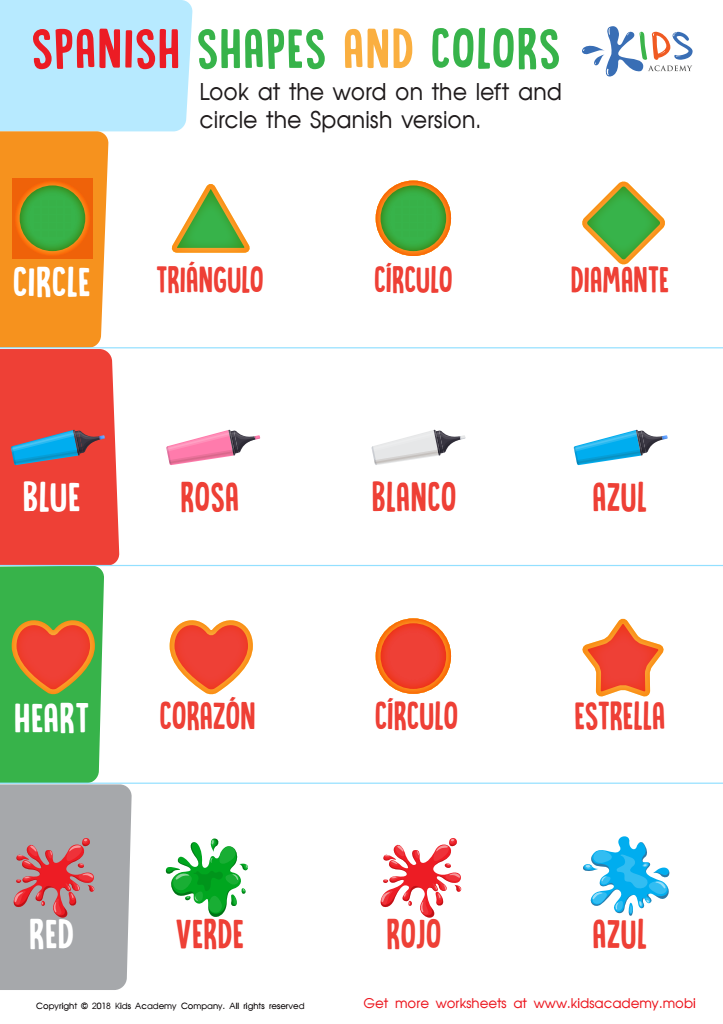

Spanish Shapes and Colors Worksheet
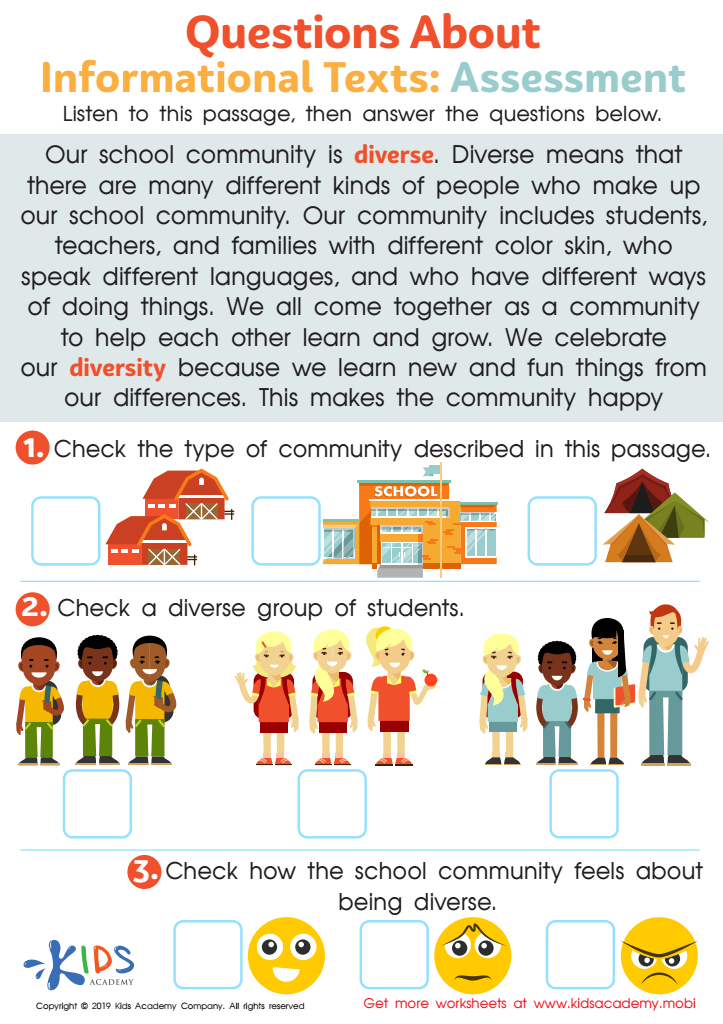

Questions About Informational Texts: Assessment 1 Worksheet
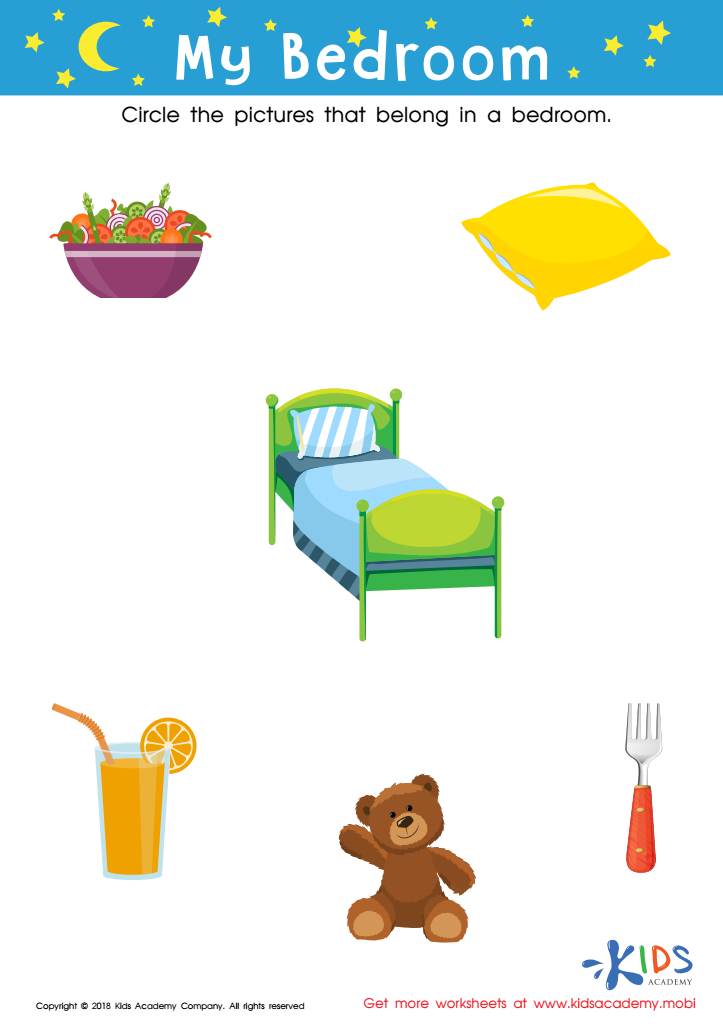

My Bedroom Worksheet
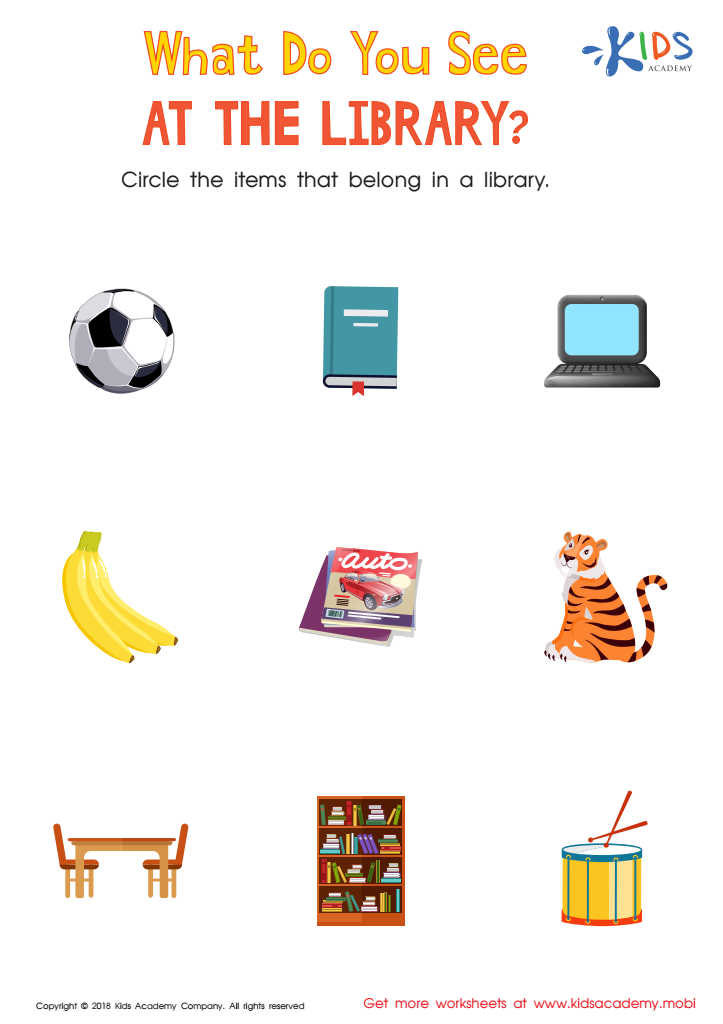

What Do you See at the Library? Worksheet
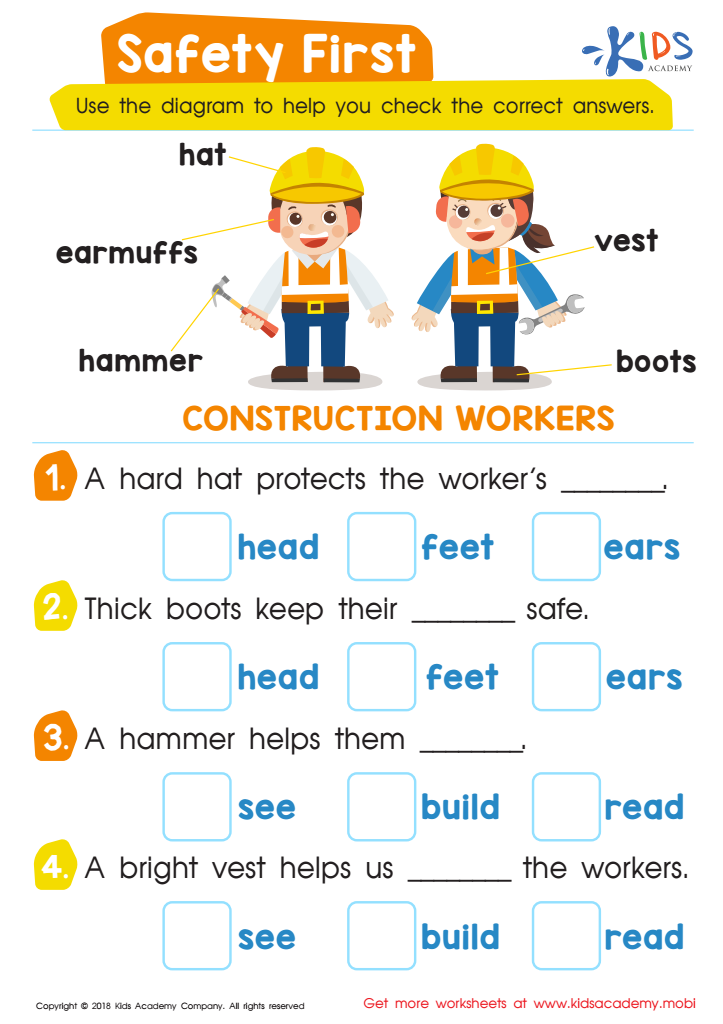

Safety First Worksheet
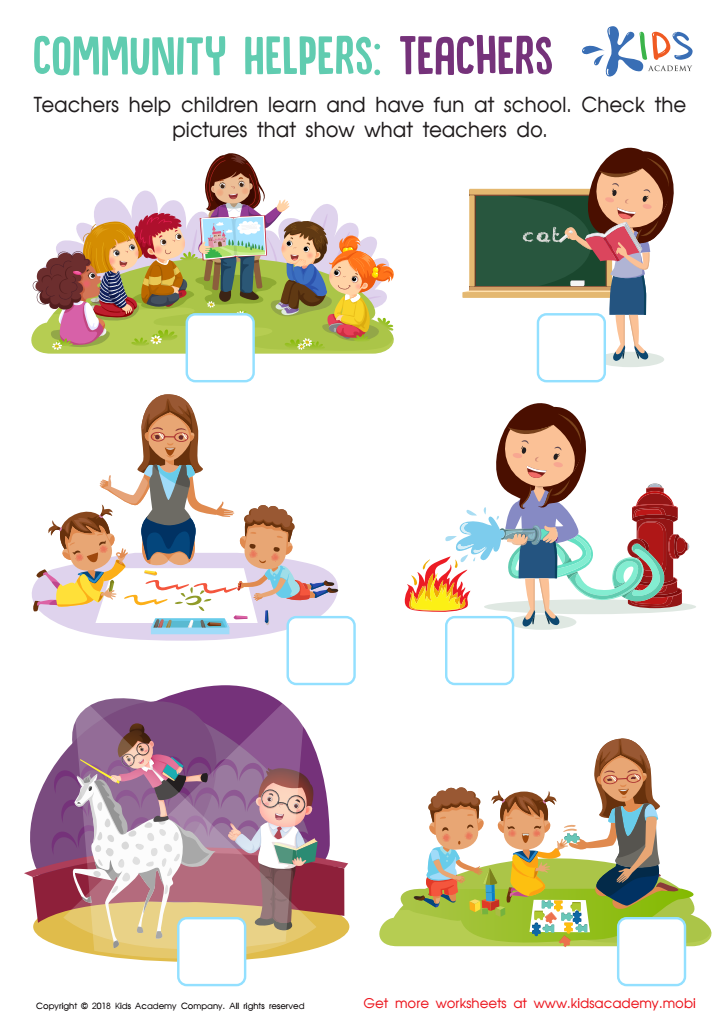

Teachers Community Helpers Worksheet
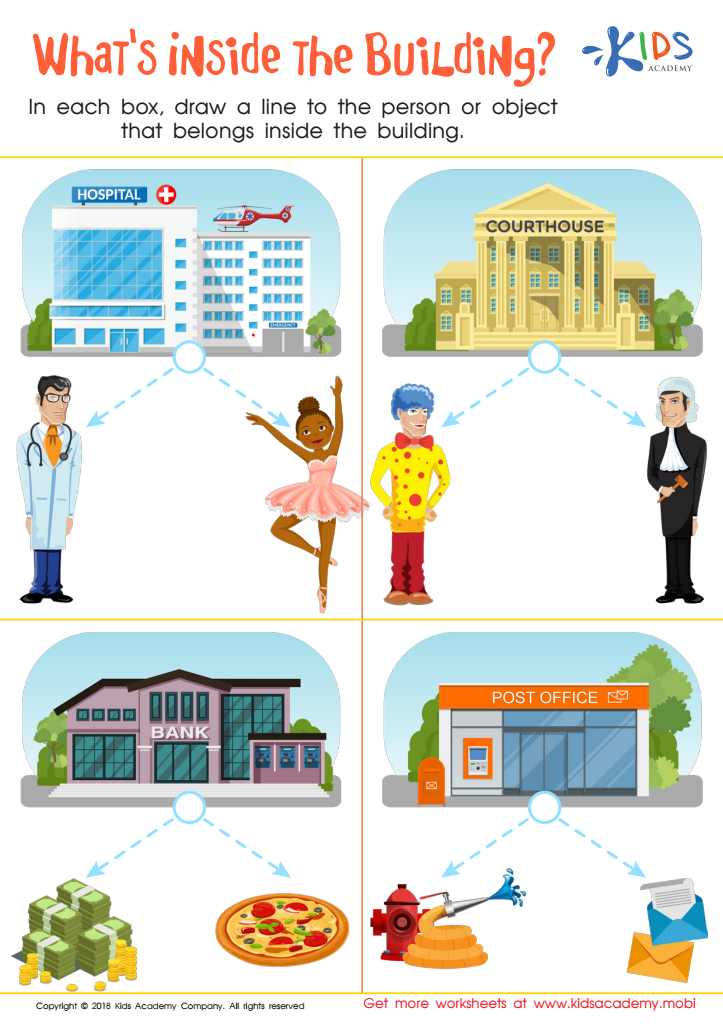

What's Inside the Building? Worksheet
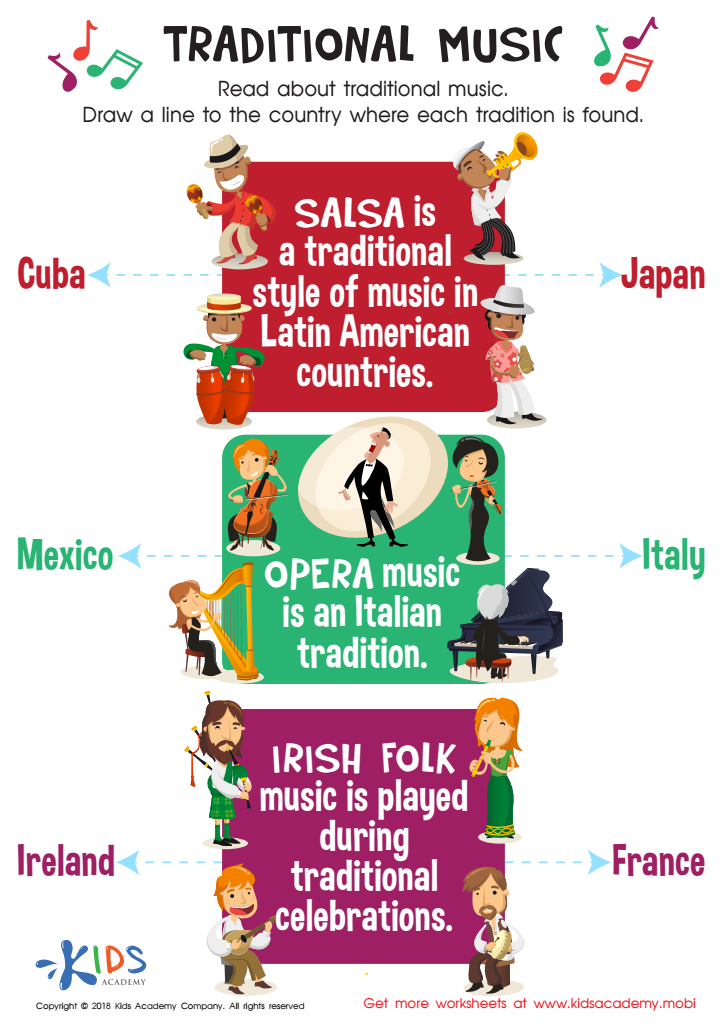

Traditional Music Worksheet
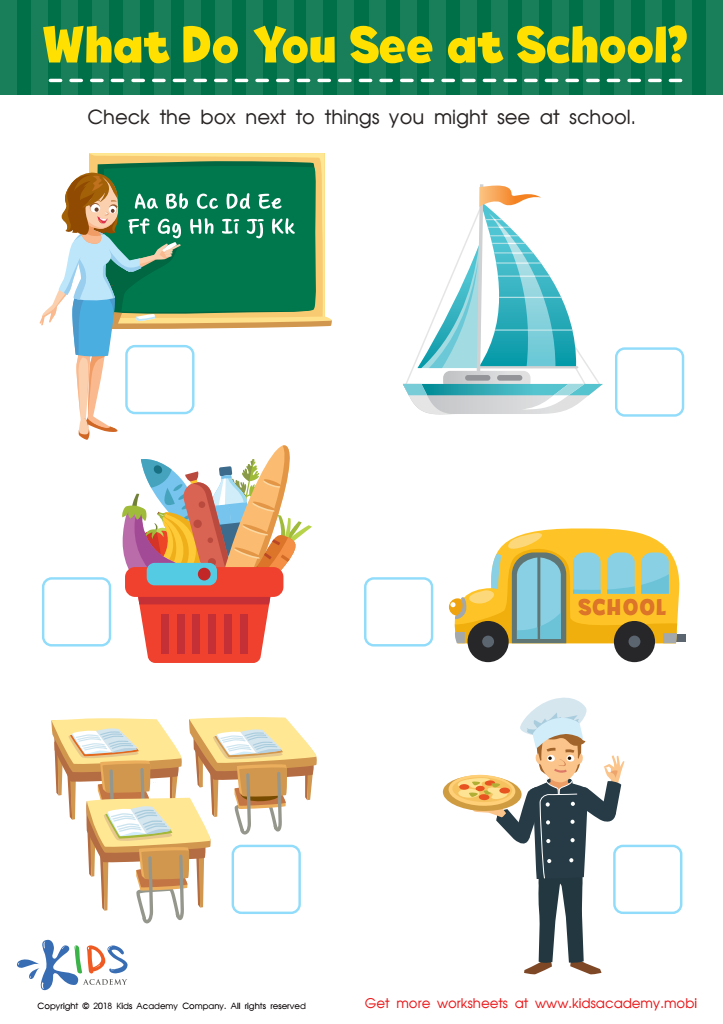

What Do you See at School? Worksheet
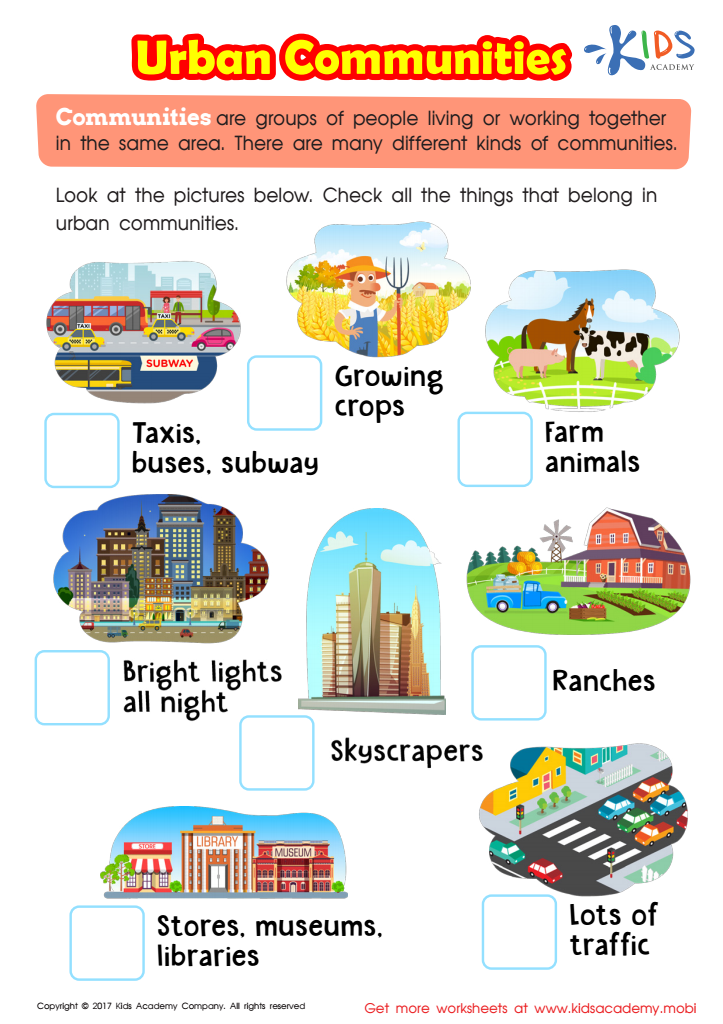

Urban Communities Printable
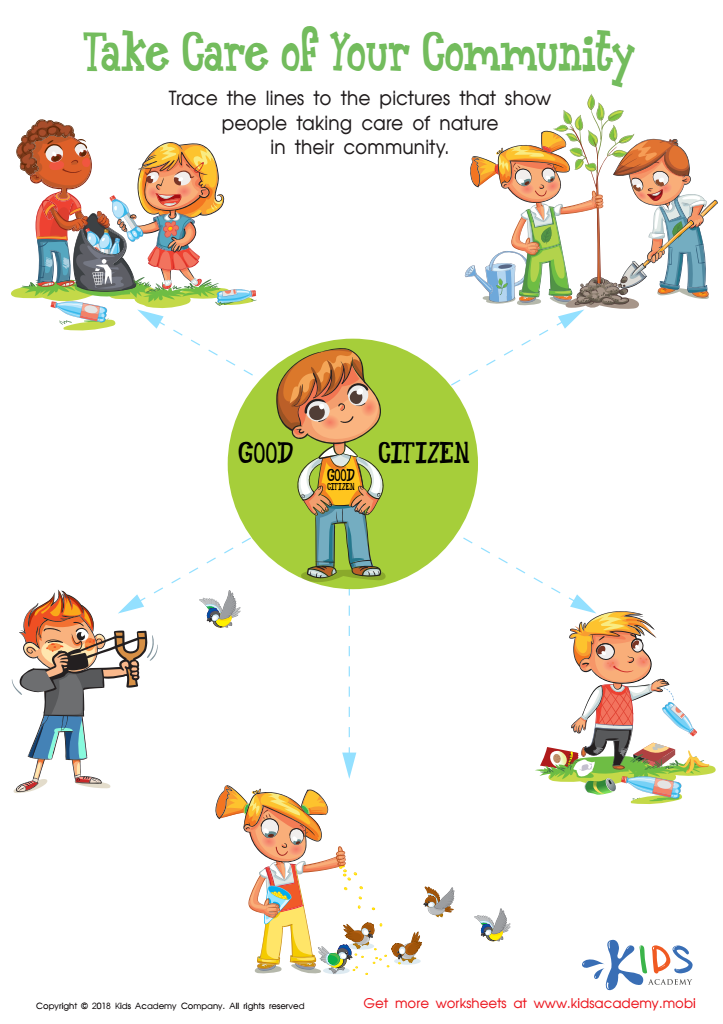

Take Care of your Community Worksheet
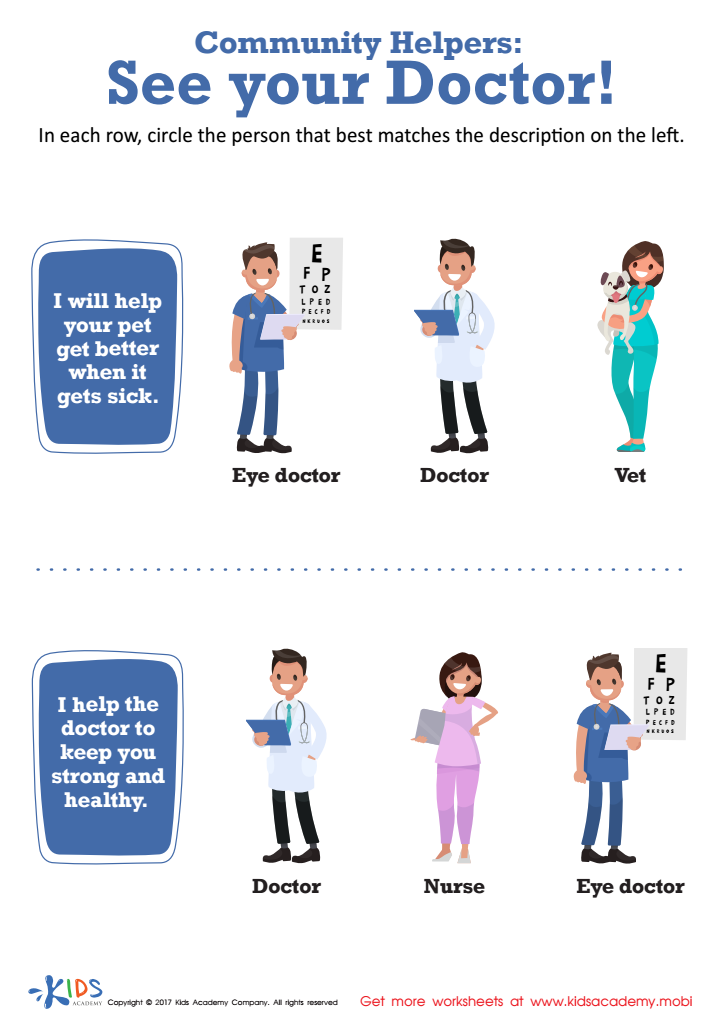

See Your Doctor (Part 2) Printable
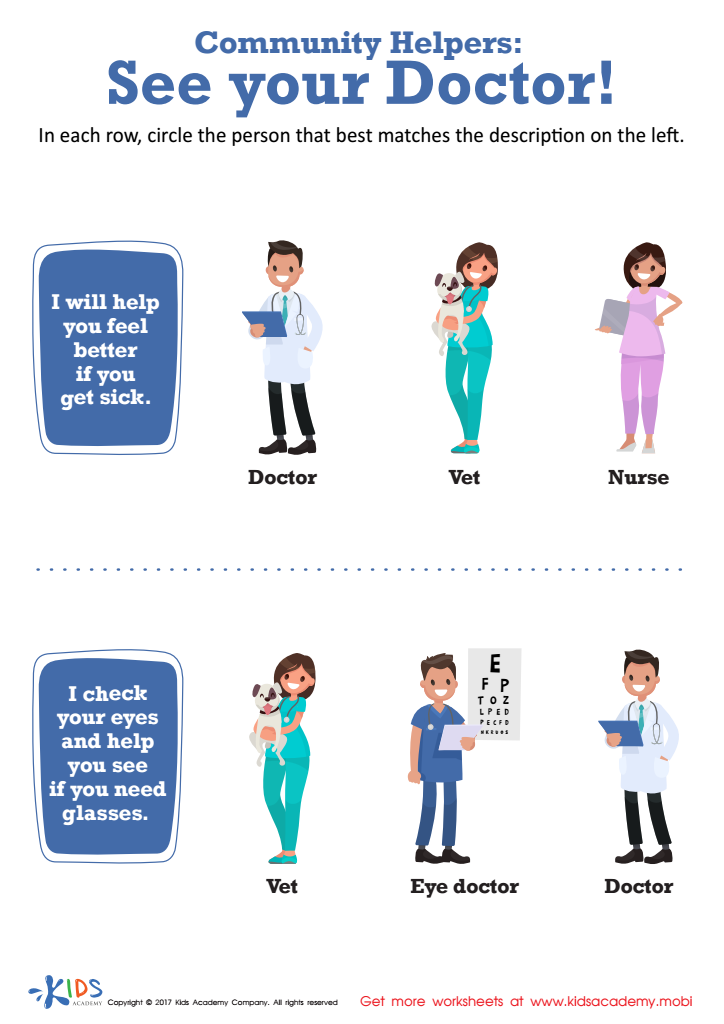

See Your Doctor (Part 1) Printable
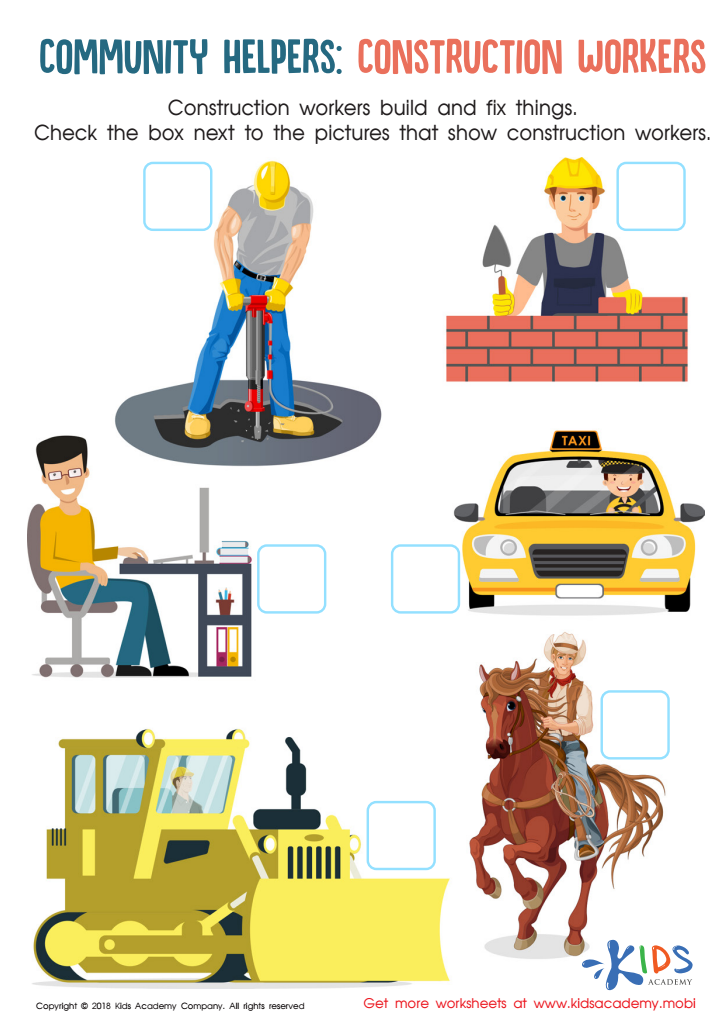

Construction Workers Community Helpers Worksheet
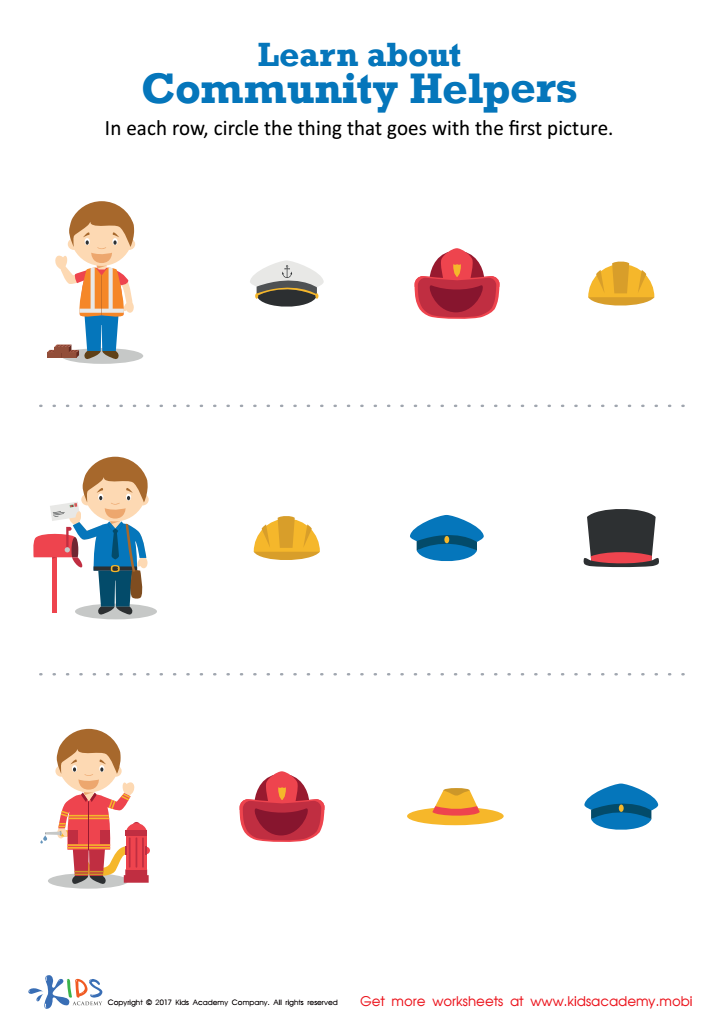

Learn about Community Helpers Printable
Reading comprehension is crucial for early learners aged 3-7, as it lays the foundation for future academic success. At this stage, children are not just learning to recognize letters and words; they are also developing the ability to understand and interpret the meaning behind the text. When parents and teachers support reading comprehension in a normal community setting, they help foster critical thinking and reasoning skills. This aspect of literacy encourages children to make connections between what they hear, see, and read, enabling them to express their thoughts and ideas clearly.
Additionally, strong reading comprehension skills are linked to enhanced vocabulary development, improved communication abilities, and higher self-esteem. Engaging children in discussions about stories, asking open-ended questions, and encouraging predictions about plot forwarding these essential skills. Moreover, supportive communities that prioritize literacy initiatives can create enriching environments for children to thrive. Parents and teachers working together can ensure that accessibility to diverse reading materials is provided, turning reading into an enjoyable event rather than a chore. In sum, investing time and resources into improving reading comprehension during these formative years leads to lifelong benefits, not just academically, but also emotionally and socially, preparing children for the future.
 Assign to My Students
Assign to My Students
















